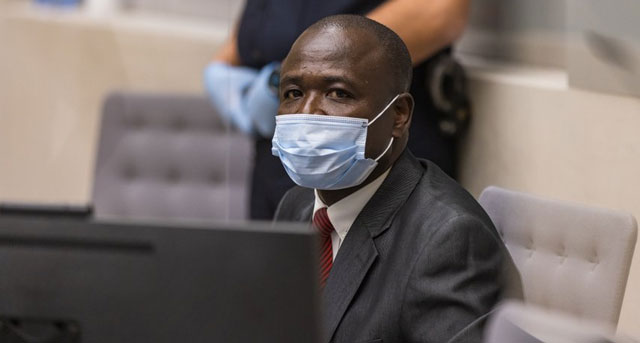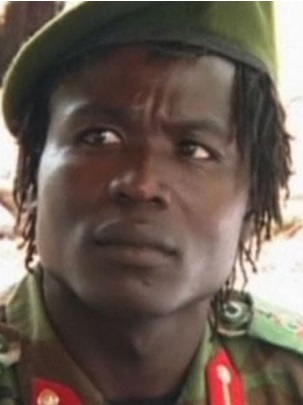
But why were Ongwen’s victims mourning alone?
Kampala, Uganda | RONALD MUSOKE | It should have been marked by wild chants of “justice at last” or even criticism, but the oddest bit about the May 06 International Criminal Court (ICC) sentencing of former Lord’s Resistance Army (LRA) commander, Dominic Ongwen, was the lack of interest in Uganda, where he committed the crimes.
Ongwen was abducted by the LRA in 1988; just one year after Joseph Kony in 1987 formed the blood-thirsty rebel group that terrorised northern Uganda for the next 20 years. Over this period, the group murdered, abducted, raped, and looted with a level of brutality not witnessed before or after. Northern Uganda has many memorial sites dedicated to the Kony terror.
And Ongwen was at the centre of the terror, having morphed so successfully from a victim to a tormentor that he rose in the ranks and acquired the rank of brigadier which was held by commanders just below the leader Kony.
The Ongwen sentencing was also significant because it marked the conclusion of the first case, technically called a situation, to be brought before the ICC.
Uganda in 2003 was the first country in the world to refer a case to the ICC soon after the court was formed in2002.
Ongwen became one of five top LRA commanders on the court’s wanted list since 2005. The others are Joseph Kony, the late Lt. Gen. Vincent Otti who for long was second in command to Kony, and Maj.Gen. Okot Odhiambo and Brig. Gen. Raska Lukwiya.
Kony remains a fugitive from the law and hiding in no-man’s land between South Sudan and the DR Congo but some of those indicted, such as Otti, Lukwiya, and Odhiambo were reported dead.
Ongwen surrendered to the ICC custody on January 16, 2015 under mysterious circumstances and was immediately flown to The Hague, in The Netherlands where he made his first appearance on January 26, 2015.
Even before his trial started, it was noted that it would mark the first time that a court trying crimes against humanity would confront the difficult question of how to hold accountable a high-ranking member of the perpetrator army who was also a victim, having been abducted as a child and groomed into the perfect killing machine.
Ongwen’s case also offered the ICC an opportunity to implement its policy of focusing on cases of sexual and gender based violence when charging alleged perpetrators of war crimes and crimes against humanity.
How would the court treat evidence of forced marriages of unwilling, sometimes under-age abducted women to top commanders of the LRA such as Ongwen? What about the cases of forced pregnancy of the same women by the rebel army commanders?
The Rome Statute criminalises forced pregnancy as a war crime and crime against humanity and Ongwen became the first person to be tried under international criminal law for forced pregnancy.
Finally, after about five years since the trial proper started on December 06, 2016 with Ongwen facing 70 charges of war crimes and crimes against humanity and following testimony from victims and expert witnesses, the court on May 06 sentenced him to 25 years in prison.
Presiding Judge Bertram Schmitt who read the ruling acknowledged that the court was faced with what he called a “unique situation” because Ongwen was both a criminal and a victim.
“The Chamber is confronted with a perpetrator who willfully brought tremendous suffering upon his victims,” Schmitt said, “ However, it is also confronted with a perpetrator who himself had previously endured extreme suffering himself at the hands of the group of which he later became a prominent leader.”
Ongwen had during trial told the court that the LRA forced him to eat beans soaked with the blood of the first people he was made to kill as part of a brutal initiation following his own abduction as a young child. He was 14 years old at the time, although some reports put his age at about 10 years, possibly, because of his diminutive stature.
Ongwen told court: “I am before this international court with so many charges, and yet I am the first victim of child abduction. What happened to me, I do not even believe happened to Jesus Christ.”
Up until the sentence, the Trial Chamber issued 70 oral decisions, and 528 written decisions. A total of 4,095 victims, represented by their legal counsels Joseph Akwenyu Manoba, and Francisco Cox, as well as Paolina Massidda, respectively, were granted the right to participate in the proceedings.
In the end, Ongwen was found guilty for a total of 61 crimes comprising crimes against humanity and war crimes, committed in northern Uganda between 1 July 2002 and 31 December 2005.
Schmitt, however, noted that the period of his detention between 4 January 2015 and 6 May 2021, will be deducted from the total time of imprisonment imposed on him meaning that the earliest he can leave jail is 2041. Ongwen who is now 45 years old will be 65 years at the time. Ongwen has a chance to appeal the sentence before the ICC Appeals Chamber.
 Mixed reactions in Gulu
Mixed reactions in Gulu
Following the sentencing, journalists who interviewed people in Gulu, the epicentre of Ongwen’s mayhem, they reported that residents greeted news mixed reactions. Ongwen’s brother, David Johnson Onelalit, says he is shocked by the duration of the sentencing.
“With all things, I thought that it was going to be nine years, but I was shocked when I heard 25 years. I feel very, very painful.”
Some of those interviewed reportedly said the 25 years were “too much.” They pointed out that Ongwen suffered when he was abducted by the LRA as a young child.
“All that he was doing was not his need. He has been forced to do all the crime that he has been doing,” said Jonathan Bagonza, a businessman from Kampala.
It is important to note that the prosecutors had asked for a 20-year prison term, saying Ongwen’s own history as a schoolboy abducted by the LRA justified a lower sentence than the maximum 30 years to life allowed by the ICC.
And the defence had sought a 10-year prison term for Ongwen for attacks by his soldiers on Internally People’s Camps in northern Uganda. But the victims of Ongwen’s crimes had asked the court to impose the full sentence of imprisonment for life.
For Flavia Lakot, a Ugandan who works with child protection, Ongwen should be brought back home.
 The Independent Uganda: You get the Truth we Pay the Price
The Independent Uganda: You get the Truth we Pay the Price





